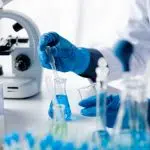
How to manage the cognitive challenges of Parkinson’s disease On a recent episode of APDA’s Dr. Gilbert Hosts about Mild...see more

How to manage the cognitive challenges of Parkinson’s disease On a recent episode of APDA’s Dr. Gilbert Hosts about Mild...see more

Questions About Parkinson’s Disease & Cognitive Impairment Changes in cognition can unfortunately be a common non-motor symptom of Parkinson’s...see more

What the latest science tells us about probiotics & Parkinson’s disease People often ask us about the use of...see more

Light therapy and Parkinson’s disease Light therapy, or the use of light as a treatment for disease, is being...see more

Dr. Gilbert Answers Questions About Parkinson’s Disease and Sleep Issues A recent episode of APDA’s Dr. Gilbert Hosts featured...see more

On September 8, 2022, APDA announced 27 new research grants for the year ahead. Our grant recipients are working tirelessly to...see more

Questions to Ask Your Doctor About Parkinson’s Disease Your doctor just told you that you have Parkinson’s disease (PD)....see more

You likely have heard about the importance of tackling Parkinson’s disease (PD) with a team approach. PD can encompass...see more

Potential new medications for Parkinson’s cognitive decline With Parkinson’s disease (PD), cognitive issues are quite common. Yet, there are...see more

Cognitive Changes are Common in Parkinson’s Cognitive difficulties are a common non-motor symptom in Parkinson’s disease (PD) and can...see more
Simple Email Signup v2 (Salsa replacement form)